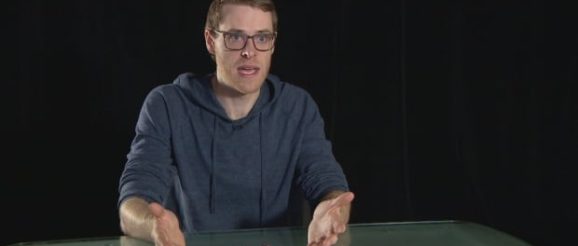Saskatoon math teacher wins $25K for ‘Innovation and Inspiration in Math Teaching’ | CBC News

Saskatoon math teacher wins $25K for ‘Innovation and Inspiration in Math Teaching’
Social Sharing
‘Dice Auction: Putting Outcomes of the Dice Up for Sale’ teaches about probability
It was more than good luck that got a Saskatoon math teacher a $25,000 prize for his lesson plan.
Nat Banting, who teaches at Marion Graham Collegiate, and his project Dice Auction: Putting Outcomes of the Dice Up for Sale won the Rosenthal Prize for Innovation and Inspiration in Math Teaching.
The lesson is designed to teach middle grade students about probability, specifically expectation (theoretical probability) versus actual enactment, or what actually happens when you play a game of chance or conduct an experiment.
He took 15 possible outcomes — for example, both numbers are ones, or the product of the two numbers that you roll are prime — and put the outcomes on an auction block.
Students then decide on a fair price for each of the outcomes and bid on the ones they want.
“At the end of the bidding, I rolled the dice 20 times and every time something that they purchased occurred on the dice, they received a prize,” Banting told Saskatoon Morning.
“The idea was to use probability as a predictive force to win the most prizes at this auction.”
The students may have won prizes, but Banting said it was getting the best deal that really excited them.
“When you talk about the outcomes of the dice, ‘the best deal’ is actually a mathematical thing where they’re comparing the price they paid to the likelihood that it appears. And that connection is a really important one in the middle school mathematics curriculum — this idea of expected value.”
At the end of the lesson, he said, “they got the very distinct impression of whether they got ripped off or not.”
Banting is the first Canadian to win the prize, which was established in 2012 by the National Museum of Mathematics in New York.
The application for the award was a long process. First, he chose a lesson he thought would be worthy of the prize and prepared an initial application. A few months later, he needed to provide a lesson plan, a reflective essay and a video of students learning the lesson.
He won $25,000, which he said he will likely put toward tuition for doctoral studies.
With files from Saskatoon Morning
